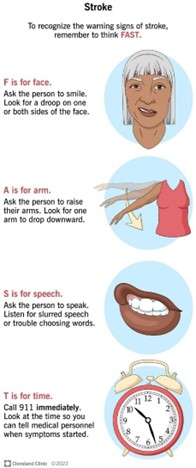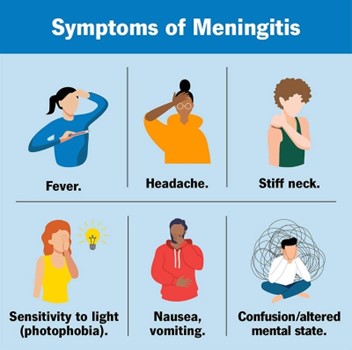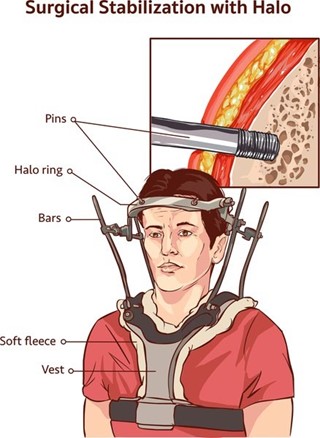A nurse is caring for a client who is unconscious following a stroke. Which of the following nursing interventions is of highest priority?
Perform passive range of motion on each extremity.
Record the client's intake and output.
Suction saliva from the client's mouth.
Monitor the client's electrolyte levels.
The Correct Answer is C
The highest priority nursing intervention for a client who is unconscious following a stroke is to suction saliva from the client's mouth. This can help prevent aspiration and maintain a patent airway, which is essential for the client's survival.
Performing passive range of motion on each extremity, recording the client's intake and output, and monitoring the client's electrolyte levels are also important nursing interventions for this client. However, these interventions are not as high of a priority as maintaining a patent airway.

Nursing Test Bank
Naxlex Comprehensive Predictor Exams
Related Questions
Correct Answer is C
Explanation
A.Obtaining a throat culture specimen might be necessary if a throat infection is suspected, but it is not the immediate priority without first assessing the presence of fever or other systemic signs.
B. Performing a complete blood count could be useful in diagnosing underlying conditions or infections but is not the initial action; the temperature check provides immediate information about potential systemic infection.
C.Check the client's temperature.Headache and stiff neck are symptoms that could be associated with various conditions, including infections such as meningitis. A fever often accompanies infections, and checking the client's temperature helps in identifying if there is a fever, which could be indicative of an infection requiring further evaluation and treatment.
D. Administering an oral analgesic could provide symptom relief but does not address the underlying cause of the symptoms. It is essential first to assess the client’s condition fully before initiating symptomatic treatment.

Correct Answer is B
Explanation
Halo-vest traction immobilizes a patient’s head and neck after traumatic injury to the cervical vertebrae as well as helping to prevent further injury to the spinal cord². Elevating the head of the bed can help improve the patient's comfort and reduce the risk of complications such as aspiration.
a. Placing the client in a supine position is not necessarily required for a patient in halo traction. The position of the patient should be determined by their individual needs and comfort.
c. Applying a pelvic girdle is not necessary for a patient in halo traction. Halo-vest traction consists of a metal ring that fits over the patient’s head and metal bars that connect the ring to a plastic vest that distributes the weight of the entire apparatus around the chest².
d. Elevating the foot of the bed is not necessary for a patient in halo traction. The position of the bed
should be determined by the patient's individual needs and comfort.

Whether you are a student looking to ace your exams or a practicing nurse seeking to enhance your expertise , our nursing education contents will empower you with the confidence and competence to make a difference in the lives of patients and become a respected leader in the healthcare field.
Visit Naxlex, invest in your future and unlock endless possibilities with our unparalleled nursing education contents today
Report Wrong Answer on the Current Question
Do you disagree with the answer? If yes, what is your expected answer? Explain.
Kindly be descriptive with the issue you are facing.
